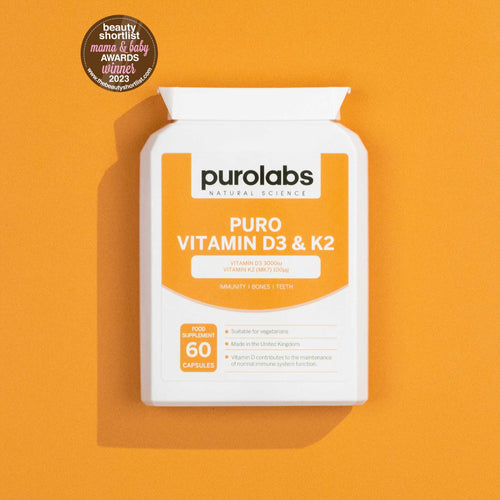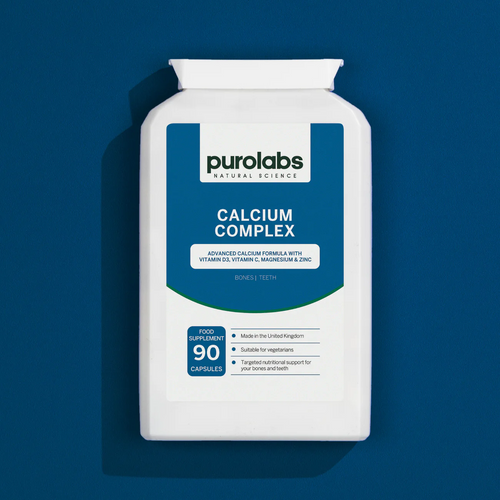Hypocalcaemia, aka calcium deficiency, is typically diagnosed by a blood test reading that shows low levels of calcium in the blood.
Hypocalcaemia is more commonly seen in those with chronic illness1 (which we will explore throughout this article). Other higher-risk groups are2:
- Vegetarian/vegan dominant diets
- People with amenorrhea (absent periods)
- Those who are lactose intolerant
- Postmenopausal women
I must preface this article by stating that it can be tricky to determine whether you are deficient in a particular vitamin or mineral, as many symptoms of potential nutrient deficiency can overlap.
‘Carrier’ vitamins, which help with the absorption of the nutrient in question may be the culprit rather than what our blood may be showing. I see this commonly for example with anaemia, which many times can be due to low folate intake.
Now that I’ve confused you and added a further layer of complexity to this article, let me tell you a few tell-tale signs that indicate a potential calcium deficiency.
Let me also add that this certainly isn’t a full list of symptoms, but these are the more common symptoms I see:
You Have Issues with Digestion
Studies show a clear distinct correlation between chronic illness and gut microbiome dysbiosis aka, an imbalance of good and bad gut bacteria3.
Dysbiosis will absolutely impact calcium (and general) nutrient absorption as many nutrients are absorbed in the intestines, where most of our gut bacteria live4.
Calcium is absorbed in the small intestine, therefore if you experience chronic bloating, abdominal pain or discomfort or constipation and/or diarrhoea, then addressing these symptoms may improve absorption4.
Another factor that impacts digestion and calcium absorption is stress. Modern living means that chronic stress is unfortunately on the rise and is seen as the norm.
Stress increases oxidative damage to the body, which increases inflammation. Inflammation impairs the body’s ability to properly metabolise and use nutrients from the foods we eat. This is especially key for minerals like calcium, making absorption, particularly tricky5.
Adopting a few simple stress reduction practices into your day can make a significant difference. Schedule 10-15 minutes out of your day for a walk, call a loved one or adopt a morning breathing or mindfulness practice. Daily stress reduction practices are difficult to start and remain consistent with, but the benefits of digestion and nutrient absorption are worth it!
If you haven’t, consider challenging yourself to try it for 30 days and see how you feel.
Muscle Cramps & Spasms
Muscle cramps are a common tell-tale sign of calcium deficiency, which usually increases in severity and occurrence over time.
Calcium ions help stabilise nerve cell structures and help to reduce nerve and muscle stimulation, which helps to calm the muscle spasms that lead to cramps.
Low Mood & Fatigue
Low levels of calcium have been shown to be linked with insomnia and fatigue and a general feeling of sluggishness.
Calcium is also linked to cognitive impairment which further exacerbates low mood and fatigue.
Irregular Heartbeat
Calcium is a vital nutrient required for thyroid health, and the thyroid has been shown to affect our cardiovascular health by affecting the rate of our heartbeat. Hyperthyroidism is linked to a rapid heartbeat whilst hyperthyroidism is linked to a lower resting heartbeat6.
Calcium has been shown to help regulate smooth muscle contractions, which include the muscles of the heart.
Premenstrual Syndrome (PMS)
Studies have shown that calcium works effectively alongside vitamin D intake to help reduce the symptoms of PMS.
Interestingly, low levels of calcium and vitamin D during the latter part of the menstrual cycle were shown to potentially cause or exacerbate PMS symptoms, encouraging the use of calcium and vitamin D supplementation to help support PMS reduction7.
Tooth Decay
Calcium, along with phosphorous also supports vitamin D levels in bone including teeth. Calcium supports the demineralisation and remineralisation of bone i.e., the breakdown and rebuilding of bone that occurs.
If there are insufficient calcium levels in the bone, then the structures that make up and protect teeth become eroded and vulnerable to cavities8.
Cavities in children have also been linked to soft drinks and their ability to draw phosphorous and minerals from bones, leading to a shocking surge in cavities in young children in recent decades.
Osteoporosis
Oestrogen levels naturally decline during and continue to decrease after menopause. Oestrogen is a bone-building hormone which helps calcium and other bone-loving nutrients to be deposited in bones to help strengthen them.
Osteoporosis occurs when more bone is being ‘destroyed’ than ‘replaced’. Over the long term, this leads to the weakening of the bones, which makes them more prone to injury and fractures.
Calcium, vitamin D and K2 all work in combination to help support bone mineral density and structure, therefore if you are at risk of osteoporosis, do consider supplementing with all three nutrients to support and protect your bone health9.

Vitamin D3 & K2

Calcium Complex
How to Treat a Calcium Deficiency
Supplementing with calcium whilst improving digestion is a surefire way to help combat a calcium deficiency.
We must also be aware of the nutrients that help increase (and decrease) calcium absorption, which is vital. As much as we need adequate calcium intake, absorption is just as important.
A common phrase we tout in the nutrition world is ‘You aren’t what you eat, you are what you absorb’ and this a mantra I live by.
Therefore, do adopt these tips when trying to get the most out of your calcium supplementation:
Take Calcium Supplement on An Empty Stomach or Lower Fibre Meal
Although you can take calcium on an empty stomach, for calcium to be effectively absorbed and utilised, we require optimal stomach acid, and the process of eating stimulates digestion which starts firing up our gastric juices. Therefore, taking calcium supplementation with a meal can help increase its effectiveness.
It’s also important to consider how much fibre is in your meal when you supplement it with calcium. Fibre can bind to calcium, affecting its absorption meaning more calcium is eliminated from the body through digestion than it is absorbed.
Although fibre is great for gut health10 and shouldn’t be avoided, my recommendation would be to take calcium with the lowest fibre meal option of the day.
Don’t Forget Vitamin D & K2
As mentioned throughout the article, calcium works with vitamin D and K2 to help support many of its functions on bone, muscular, cognitive, and cardiovascular health and certainly helps calcium to perform its health-promoting functions.
Try to Take it Apart from Other Minerals
Minerals compete for receptors in the body and are absorbed by the same parts of the digestive tract meaning that if you take two minerals together, they may compete for absorption sites11.
Therefore, if you are taking a zinc, iron, or magnesium supplement, for example, take these several hours apart from calcium to help increase the absorption of all minerals.
If you are still confused as to whether you have a calcium deficiency or not, then booking an appointment with your GP or registered health practitioner for a blood test could be a helpful next step. This will help confirm or provide a helpful explanation for your symptoms.

 Beauty
Beauty
 Bone Health
Bone Health
 Brain Health
Brain Health
 Energy
Energy
 Eye Health
Eye Health
 Gut Health
Gut Health
 Hair
Hair
 Hormonal Health
Hormonal Health
 Heart Health
Heart Health
 Immunity
Immunity
 Joints
Joints
 Menopause
Menopause
 Pregnancy
Pregnancy
 Kids
Kids
 Sleep
Sleep
 Stress & Mood
Stress & Mood




















